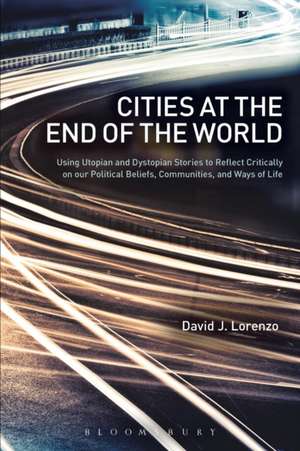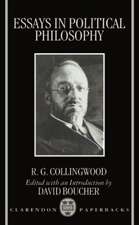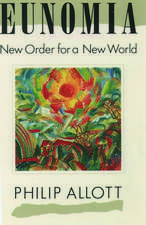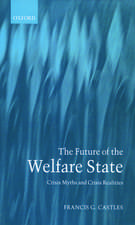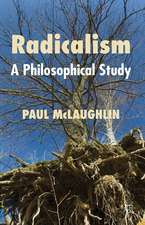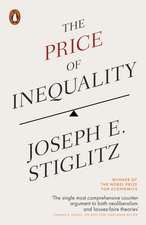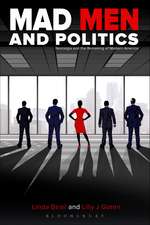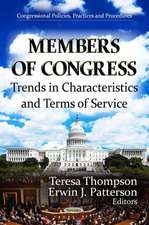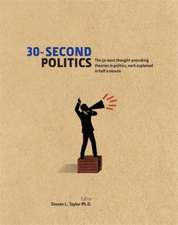Cities at the End of the World: Using Utopian and Dystopian Stories to Reflect Critically on our Political Beliefs, Communities, and Ways of Life
Autor David J. Lorenzoen Limba Engleză Paperback – 9 mar 2016
| Toate formatele și edițiile | Preț | Express |
|---|---|---|
| Paperback (1) | 256.77 lei 6-8 săpt. | |
| Bloomsbury Publishing – 9 mar 2016 | 256.77 lei 6-8 săpt. | |
| Hardback (1) | 772.58 lei 6-8 săpt. | |
| Bloomsbury Publishing – 2 iul 2014 | 772.58 lei 6-8 săpt. |
Preț: 256.77 lei
Preț vechi: 330.80 lei
-22% Nou
Puncte Express: 385
Preț estimativ în valută:
49.13€ • 51.44$ • 40.65£
49.13€ • 51.44$ • 40.65£
Carte tipărită la comandă
Livrare economică 05-19 aprilie
Preluare comenzi: 021 569.72.76
Specificații
ISBN-13: 9781501317705
ISBN-10: 1501317709
Pagini: 240
Dimensiuni: 152 x 229 x 25 mm
Greutate: 0.33 kg
Ediția:NIPPOD
Editura: Bloomsbury Publishing
Colecția Bloomsbury Academic
Locul publicării:New York, United States
ISBN-10: 1501317709
Pagini: 240
Dimensiuni: 152 x 229 x 25 mm
Greutate: 0.33 kg
Ediția:NIPPOD
Editura: Bloomsbury Publishing
Colecția Bloomsbury Academic
Locul publicării:New York, United States
Caracteristici
Features three utopian and three dystopian stories which will generate new questions about political beliefs
Notă biografică
David J. Lorenzo received his Ph.D. from Yale University and is an Associate Professor, College of International Affairs, National Chengchi University, Taipei, Taiwan (ROC).
Cuprins
1. Introduction2. Utopia (Thomas More)3. Isle of Pines (Henry Neville)4. Looking Backward (Edward Bellamy)5. News from Nowehere (William Morris)6. We (Evgeni Zamyatin)7. Nineteen Eighty-Four (George Orwell)8. ConclusionBibliographyIndex
Recenzii
In Cities at the End of the World David Lorenzo tackles key themes of utopian and dystopian writing, such as the relationship of the individual and society, the inherent tensions in the human pursuit of knowledge and happiness, and the role of the state in balancing personal desires against equality, justice and order. His focus on what we might be able to learn from his findings meanwhile follows the spirit of the authors he studies: by exploring alternative societies he calls on us to address contemporary problems. Combining acute analysis with accessibility Lorenzo's work has much to offer, not just to scholars and general readers, but to political decision makers as well.
A timely book for our troubling political times in the West and particularly the US. In the face of serious economic challenges, globalization and the failure of both public and private sectors in providing social and economic goods in anything like a just distribution, Western nations need to 'rethink themselves.' David Lorenzo's exploration of utopias and dystopias is an imaginative and powerful means for engaging that rethinking. Such stories challenge our complacency about both our contemporary politics and our ends.
In a paradigm expanding, comparative framework, Lorenzo proves that analyzing utopian and dystopian stories is politically relevant. His thorough and meticulous book examines their role and function in illuminating political, social, and economic debate. Comparing diverse theories he examines the essential issues that all good political theory addresses: human nature; the structure of a good or bad society, political order, or economy; content, nature, and meaning of freedom; extent of equality; the good life; who rules and why; and power.
A great contribution regarding the potential of the engagement between politics and literature
A timely book for our troubling political times in the West and particularly the US. In the face of serious economic challenges, globalization and the failure of both public and private sectors in providing social and economic goods in anything like a just distribution, Western nations need to 'rethink themselves.' David Lorenzo's exploration of utopias and dystopias is an imaginative and powerful means for engaging that rethinking. Such stories challenge our complacency about both our contemporary politics and our ends.
In a paradigm expanding, comparative framework, Lorenzo proves that analyzing utopian and dystopian stories is politically relevant. His thorough and meticulous book examines their role and function in illuminating political, social, and economic debate. Comparing diverse theories he examines the essential issues that all good political theory addresses: human nature; the structure of a good or bad society, political order, or economy; content, nature, and meaning of freedom; extent of equality; the good life; who rules and why; and power.
A great contribution regarding the potential of the engagement between politics and literature
